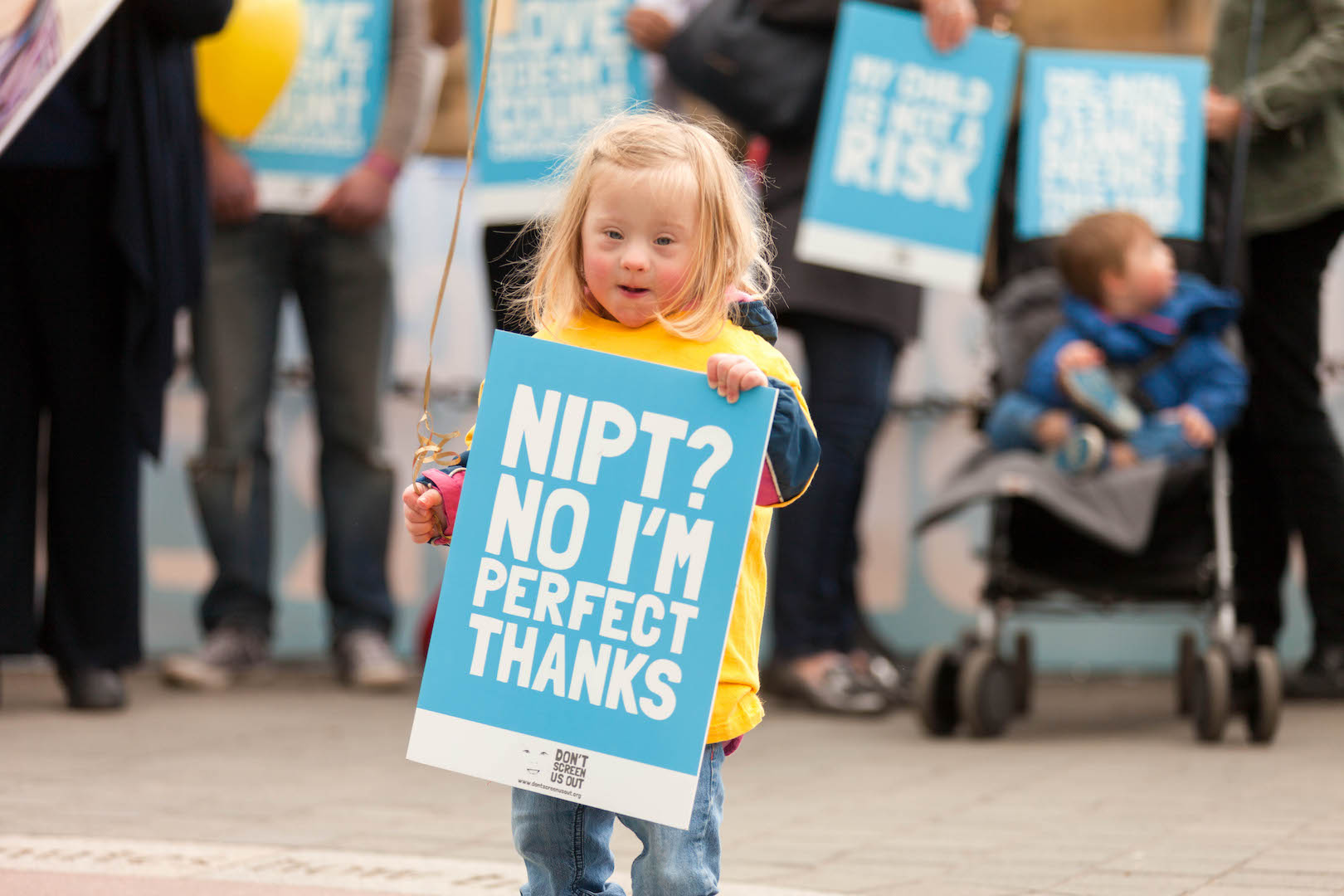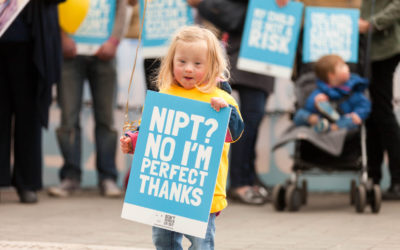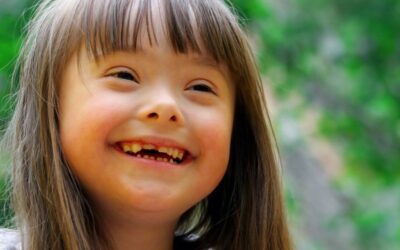Press release for immediate release
760 abortions where baby had Down’s syndrome as momentum builds to stop abortion up to birth for babies with Down’s syndrome
23 May 2024 – The most recent abortion statistics released by the Department of Health and Social Care today show that there were 760 abortions where a baby had Down’s syndrome in 2022, an increase of 16% from 2019 when there were 656.
The statistics also show there were 19 late-term abortions at 24 weeks gestation or over where the baby had Down’s syndrome, an increase of 58% from 2019 where there were 12.
There were 3,124 abortions for babies with disabilities in 2022. The number of late-term abortions at 24 weeks gestation or over where the baby had a disability was 256 in 2022.
2022 saw an increase of 15% in the number of abortions where a baby had a cleft lip and palate, rising from 40 in 2021 to 46 in 2022. There were 6 late-term abortions at 24 weeks and over where a baby had cleft lip or cleft palate.
Under the current law, abortion is allowed up to birth if a baby has a disability including Down’s syndrome. However, Sir Liam Fox MP recently tabled an amendment to the Criminal Justice Bill that was signed by over 76 MPs to stop abortion up to birth for babies with Down’s syndrome. Although, due to the General Election, the amendment will now not be voted on, it has helped build further momentum for change to stop abortion up to birth for Down’s syndrome.
The abortion time limit under Section 1(1)(a) of the Abortion Act is set at 24 weeks, but for cases in which a baby is thought to have a disability, including Down’s syndrome, abortion is currently available up to birth. This amendment would have equalised the time limit for babies with Down’s syndrome, meaning that it would be set at 24 weeks.
Figures released on 28 March 2024 show that 87.26% of all babies prenatally diagnosed with Down’s syndrome in England and the Crown Dependencies were screened out by abortion in 2021.
The actual numbers are probably higher than reported due to underreporting of disability abortion statistics. A 2013 review showed 886 abortions for Down’s syndrome in England and Wales in 2010 but only 482 were reported in abortion statistics from the Department of Health and Social Care. The underreporting was confirmed by a 2014 Department of Health and Social Care review.
The private availability of cfDNA testing (otherwise known as NIPT) is likely already leading to an increase in the numbers of children with Down’s syndrome being screened out by termination. The rolling-out of these tests on the NHS, who were already recommending the private tests to expectant mothers, may also be having an impact on the number of terminations.
An investigation by The Sunday Times found that the number of babies born with Down’s syndrome has fallen by 30% in NHS hospitals that have introduced the new form of screening.
The figures, which were released by 26 hospital trusts in England under freedom of information laws, account for about a fifth of the hospital trusts that offer maternity services. They show that more women who have the new test go on to have abortions.
This situation is set to get worse as the Government’s evaluative implementation of Non-Invasive Prenatal Testing as part of the Fetal Anomaly Screening Programme gets underway.
Polling has shown that the majority of people in England, Wales and Scotland think that disability should not be a ground for abortion at all, with only one in three people thinking it is acceptable to ban abortion for gender or race but allow it for disability.
Lynn Murray, spokesperson for the Don’t Screen Us Out campaign, said:
“As a mother of a 24-year-old daughter who has Down’s syndrome, I see every day the unique value she brings to our family and the positive impact she has on others around her.
It is deeply concerning that despite the leaps that advocacy groups have made in raising awareness in support of people with Down’s syndrome, abortion in the case of Down’s syndrome is still so commonplace and widespread in the UK. In fact, we hear from parents all the time how abortion was repeatedly presented to them in the hospital as an obvious solution following the receipt of the news that their baby had Down’s syndrome.
The Government implementation of NIPT in NHS Hospitals began on 1 June 2021 and projections show that there will likely be a steep increase in the numbers of children with Down’s syndrome screened out by termination unless there is an immediate intervention.
In England and Wales, around 90% of babies diagnosed with Down’s syndrome are aborted. This raises questions for the Government about the purpose of prenatal screening and a law which encourages this situation to occur.”
ENDS
- For more information on the Don’t Screen Us Out campaign, see our website www.dontscreenusout.org or email info@dontscreenusout.org
- For interviews, contact Don’t Screen Us Out spokesperson Lynn Murray on 07840 966 736 or email info@dontscreenusout.org
- The abortion statistics report from the Department of Health and Social Care for England and Wales for 2022 is available here.
- High-resolution photos of Don’t Screen Us Out events which can be used by the media are available here: https://www.flickr.com/photos/dontscreenusout/albums



